What my experiences with nature taught me about transformative change
I was a small, quiet girl — afraid to be heard. But that was not who I wanted to be. I didn’t expect to find my voice in the canyons of the American Southwest, but the outdoors has a unique way of giving us the space to become who we need to be.
For me, my environmental journey started in high school. I found myself overwhelmed by the prospect of making new friends. When I was young, my classmates knew me as the shy girl. I hardly spoke up in class and everyone had to strain to listen when I did. After eight years at my elementary school, I slowly broke through that part of myself. Yet at a new school surrounded by unfamiliar faces, I was slipping back into my protective shell.
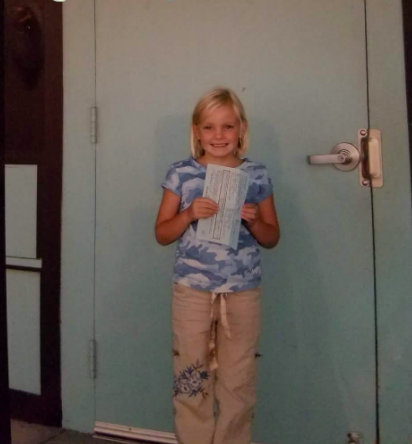
A few weeks into my freshman year of high school, I heard about the Outdoor Adventure Club. The club was known for its epic weekend trips of backpacking, kayaking, snowshoeing, and almost any outdoor activity students wanted to organize. I knew nothing about the world of the outdoors, but I knew myself. If I wanted to make friends and socialize, I would need an organized activity, so I decided to go to the first meeting.
The only Prerequisite? A Positive Attitude and Respect for Others.
The club was overwhelmingly popular. Over a hundred students filled the classroom at 7:15am, with many kids sitting on the ground or on tabletops, and late-comers crowding by the sides of the door. On water bottles and binders of seasoned members were stickers with the club motto, “Turn off your phone, Nature is calling.” I found myself talking to a couple of other newcomers, connecting over our lack of outdoor experience.
The club leader greeted students old and new with huge, friendly smiles as he sent around info sheets and permission slips for the club’s first trip: Beginner-level backpacking in a local national forest. Everyone was welcome and included on club trips, he said. No experience or gear necessary. Cliquish behavior and cell phone use prohibited. The only prerequisites? A positive attitude and respect for others.
Turn off your phone, nature is calling.
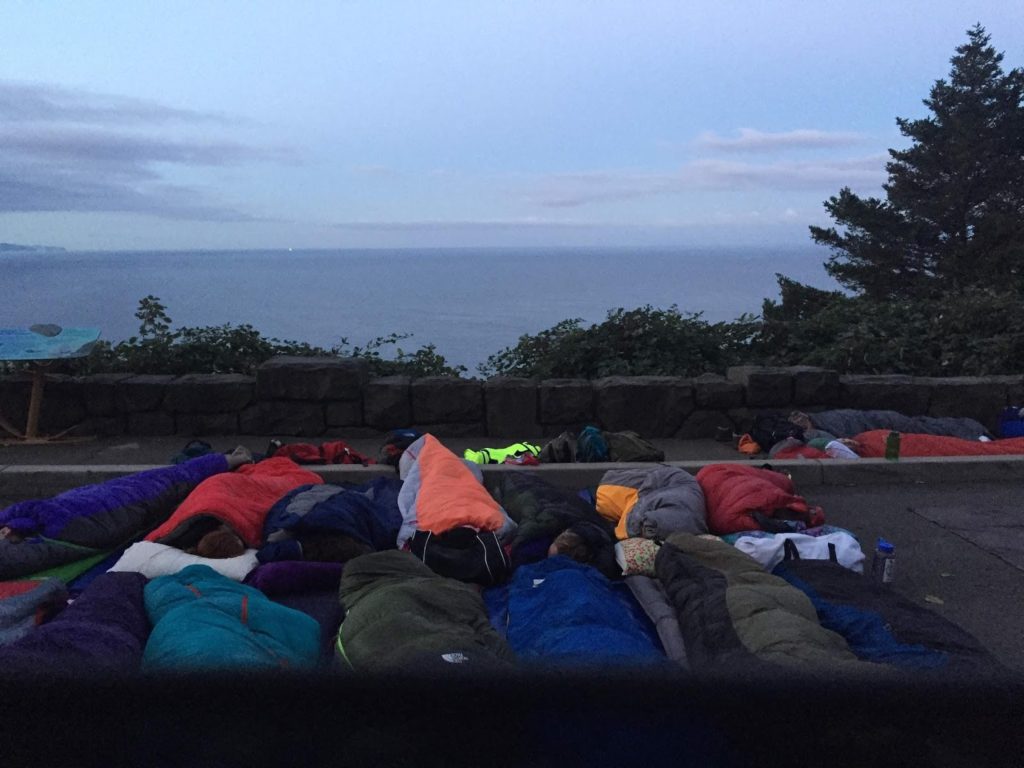
This pitch sucked me in, but the trips and community the club fostered kept me. Through my four years of being a proud Outdoor Adventure Club member, we went on journeys far outside the bubble of our little town, expanding our worlds. From getting swept away on biannual trips to Yosemite, road-tripped to Mount Rainier in Washington, backpacked locally in Tahoe National Forest, and car camped on the northern California Coast. However, the most transformative was spending a month of the summer following my junior year camping through the American Southwest.
Spaces on the widely known Southwest Trip were coveted by sophomores, who had to apply a year in advance. Our teacher had the difficult task of narrowing about one hundred applications down to a group of thirty kids to take on a trip that would be defining for most of them. So when he pulled me out of class to tell me I would be going, I was absolutely thrilled.
28 Days Unplugged.
Setting off for this adventure, I was nervous. I only knew a few of the other kids well, and I wasn’t sure I would be able to open up around such a big group so quickly. But living in the vast openness of the southwest I felt free, and the fear of being myself began to fade away. Without the distractions of life back home, we were all more open, forming genuine connections, with each other and the desert.
We spent 28 days together, unplugged from technology with little contact with parents, chaperoned by a couple teachers and “Southwesters” from years past. We made our way from the granite domes of Yosemite, to Death Valley’s rolling dunes, on to the Grand Canyon, Zion, Arches, and many other lesser-known, but no less grand, state parks and monuments. Days were spent waking up before sunrise to hike far into red rock canyons before the heat of the day drove us out. In the evenings we enjoyed the cooling desert sunsets before laying out on our giant tarp, letting the stars put us to sleep.
Living in the vast openness of the southwest I felt free, and the fear of being myself began to fade away.
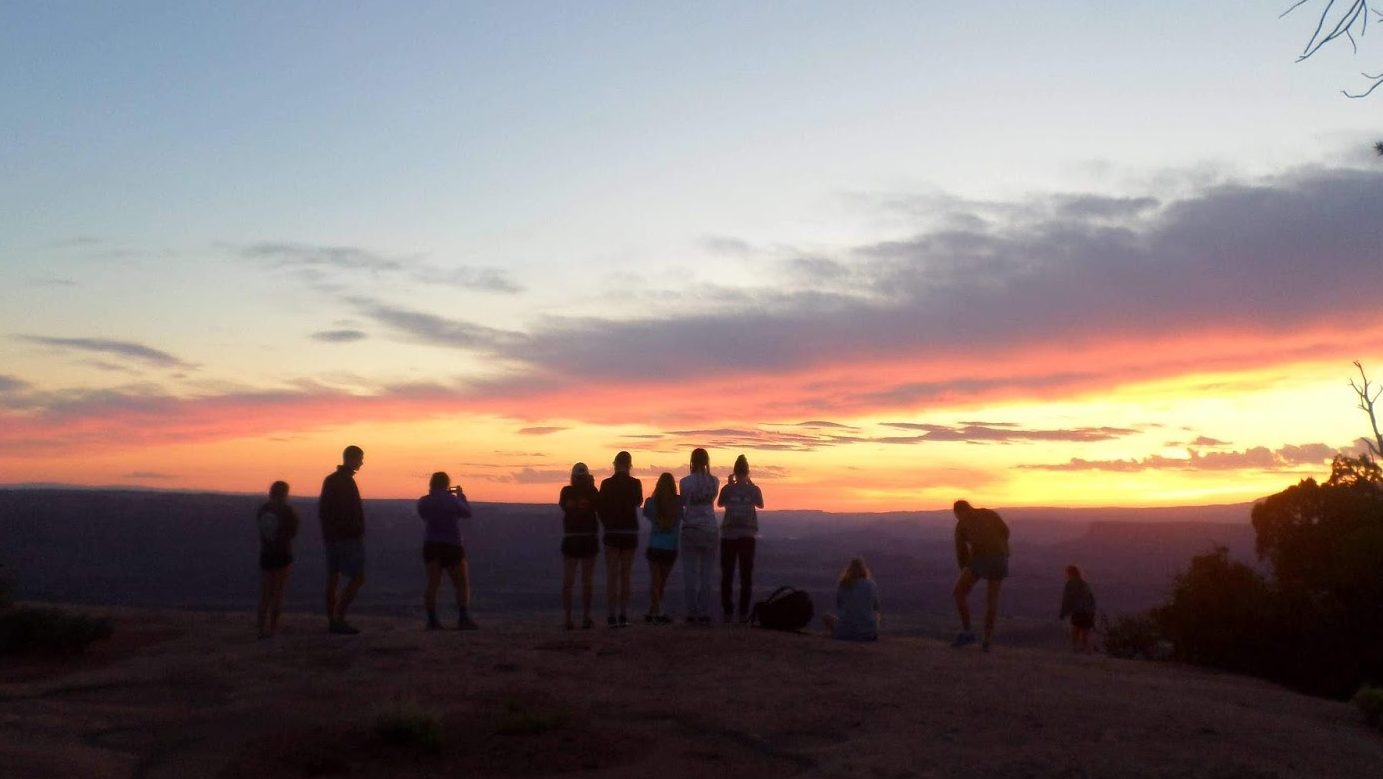
I celebrated turning seventeen at the Grand Canyon that summer. Everyone with a birthday on the trip was given a secret list in the morning of things they had to do before the end of the day. For the most part the lists were unique, mine included complimenting three different people’s ankles, but one task was given to everybody. At some point in the day, you had to yell, as loud as you could, “It’s my birthday and I love myself!” I was dreading that one. But as we sat scattered on the south rim of the Grand Canyon watching the sunset that evening, it was as good of an opportunity as I was going to get. I took a deep breath and yelled the words, even for the strangers at the lookout to hear. It was the loudest that anyone in my group had heard me be. The crowd at the lookout began singing happy birthday, and while I was embarrassed, I also felt perfectly happy with myself, and where I was. I found my voice.
After two thousand miles of car rides together, falling asleep on a number of different shoulders, we became a family. The first night back home, many of us slept in our backyards, rather than the beds we had been away from for so long. A few nights later we got a message from our teacher summing up what we all were feeling: “Miss you and the stars.”
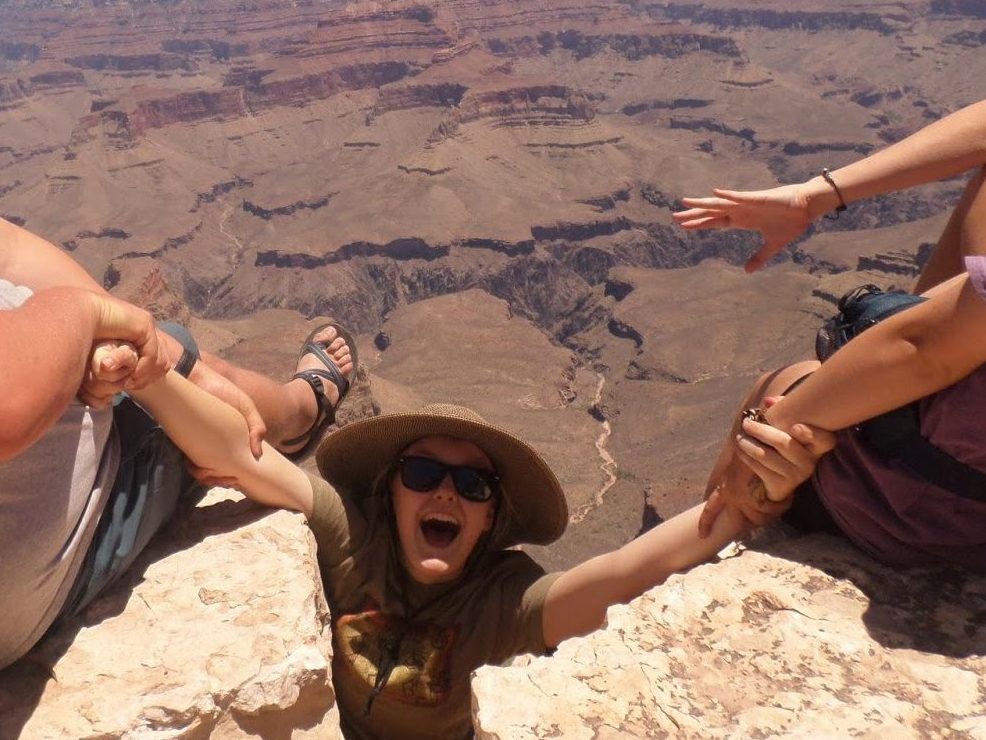
Paying it Forward
My first year in the club, being a newbie to hiking, camping, backpacking, and definitely anything snow related, I mostly followed the lead of the older kids. As I became a more experienced member — able to cook up a mean backcountry meal of dehydrated potatoes — I was one of the kids new members were looking to.
Having this responsibility, I was empowered. When showing new adventurers how to use a cookstove, or modeling the club ethics, I was paying forward what had been passed on to me. It was now my job to start conversations and make sure they felt included, especially for those obviously outside their comfort zone. The more I had to be a leader, the more I felt how I’d changed. I had found my passion and my place, I didn’t need to be shy, and aspired to show the new kids that they didn’t have to be either.
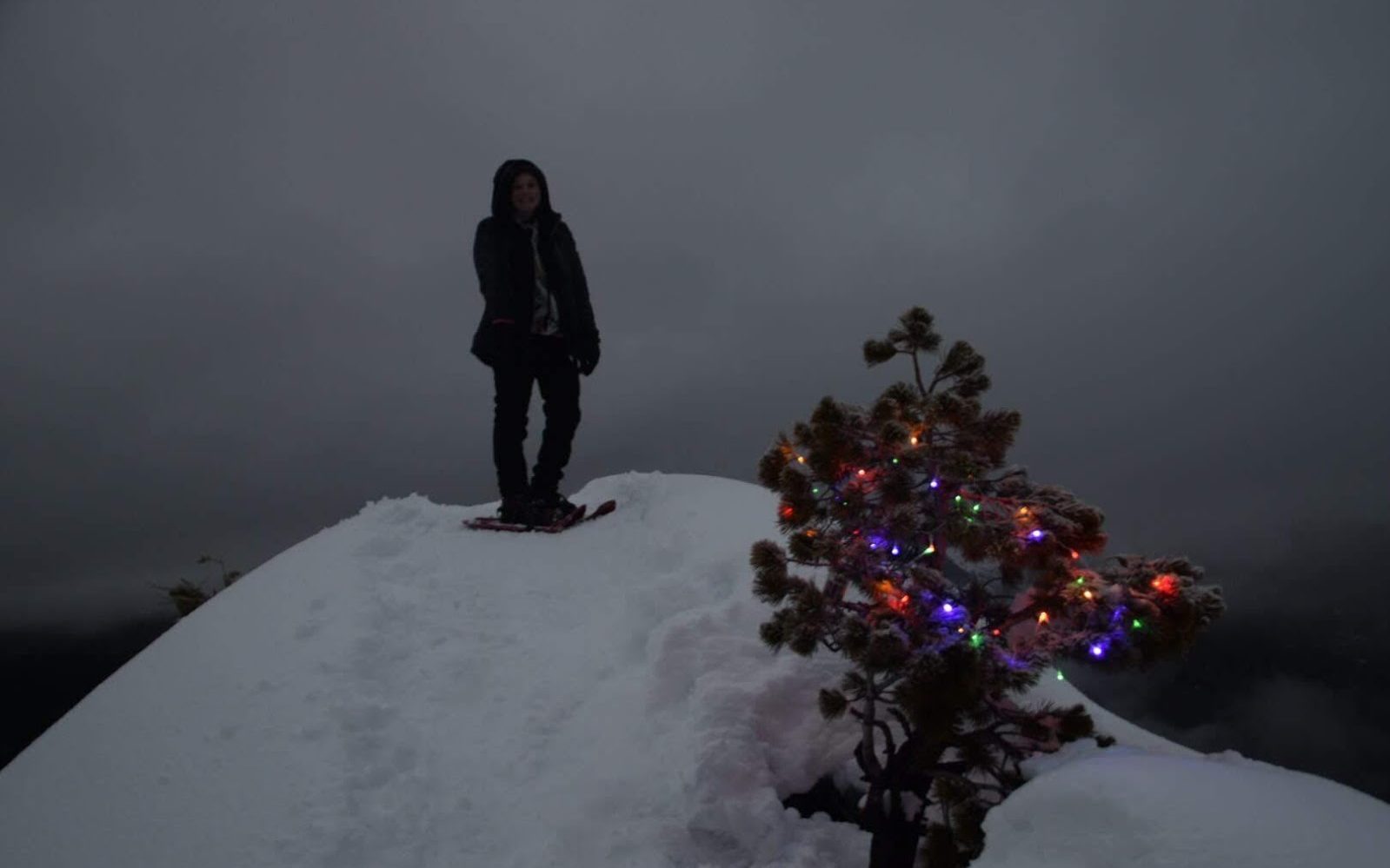
Simultaneously, my values had changed. After all the time outside and having such positive experiences with nature, I became increasingly invested in protecting it. It was evident to me that without doing so, we’d eventually find ourselves with very little of value.
A Valley Lost, and Lessons Learned
On one club trip we visited the Hetch Hetchy reservoir in Yosemite. I learned how a pristine glacier carved valley within a national park boundary, was flooded by people who had never stood below it’s granite walls. While still a beautiful reservoir, the Hetch Hetchy Valley was under the same protections as it’s iconic neighbor. No one would dream of flooding Yosemite Valley, but it’s rumored that the Hetch Hetchy Valley was only slightly less impressive. Not enough people knew about it, so not enough people fought for it.
As distressing as it is knowing what can happen when not enough people care, my experiences have made me care, which in turn made me hopeful. My eyes had been opened. Because I benefited so much from nature, I wanted to become aware of my impacts. Because we were taught to leave no trace, leaving a light impact became part of my moral philosophy in general. If I could be influenced to care about the environment simply from experience, then so could many others, given the opportunity.
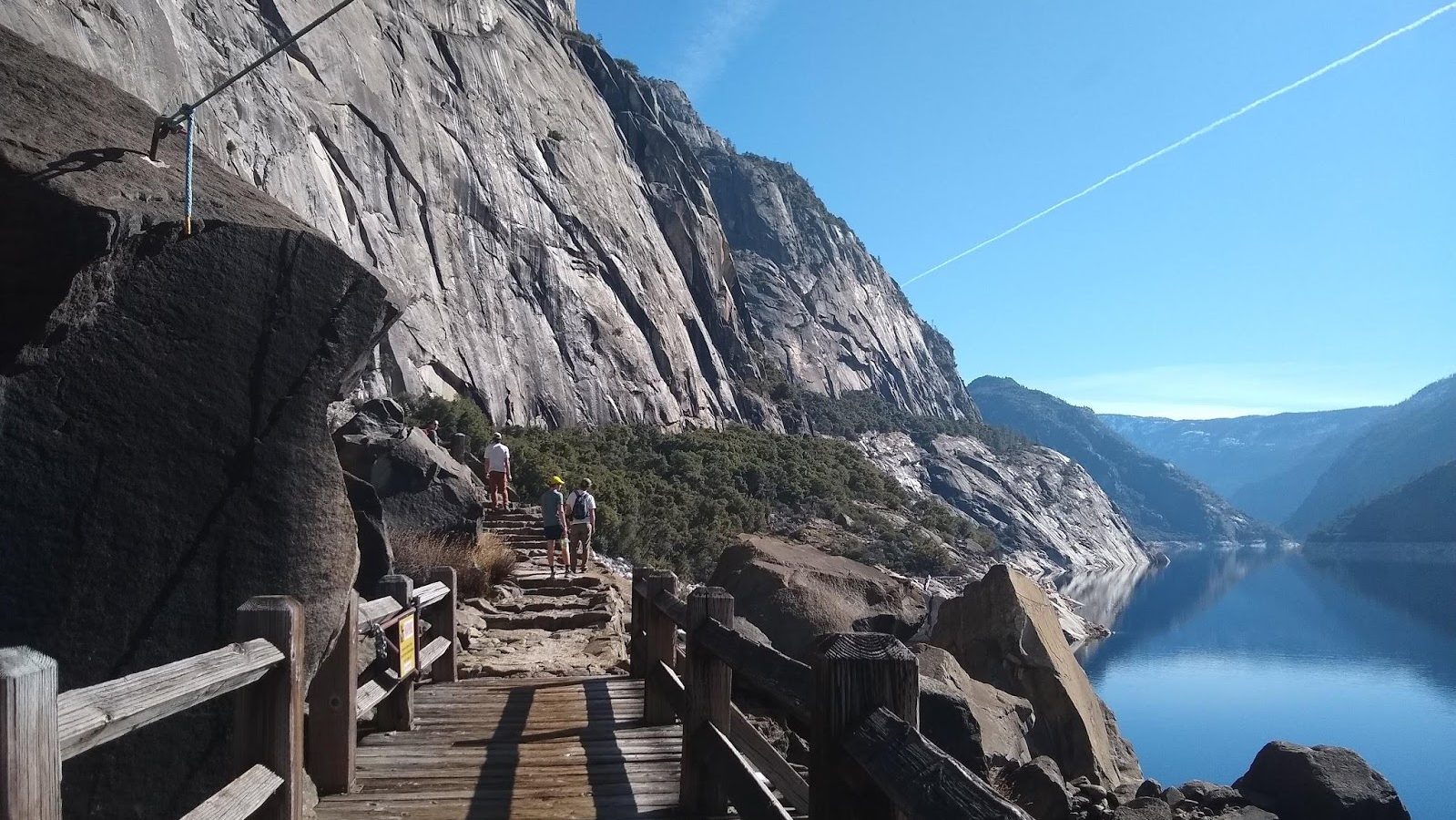
When it came time to apply for college, the one thing I knew I really wanted to learn was how to save the planet. I was lucky to be accepted to the Environmental Studies program at the University of California, Santa Barbara.
Caring for a Pocket Mouse, and the Planet
At UCSB, I interned for an environmental education program where I taught beach ecology to fifth graders. Watching them ponder over the tracks left in the sand by various coastal critters or working as a team in half delight, half-disgust as they try to capture and count Beach Hoppers, I saw their eyes opening in the same way mine did. Every day I spent with the kids, I was inspired by their willingness to care, and their curiosity about the world, even when it wasn’t quite focused where I intended. For example, huddling around a dead mouse found in the sand instead of inspecting the tiny hairs on the leaves of a beach bur plant. Quickly a lesson about plant adaptations can devolve into a funeral for a tiny pocket mouse.
With a bit of guidance, caring can turn into action.
For those trying to affect environmental change, their willingness to engage is a great advantage when raising the next generation of environmental stewards. Kids just need to be given the resources and context to care. I was lucky. I had access to an outdoor program, a mentor who inspired me to get unplugged and outside, and environmental education. From this, I was able to contextualize why protecting the environment mattered to me.
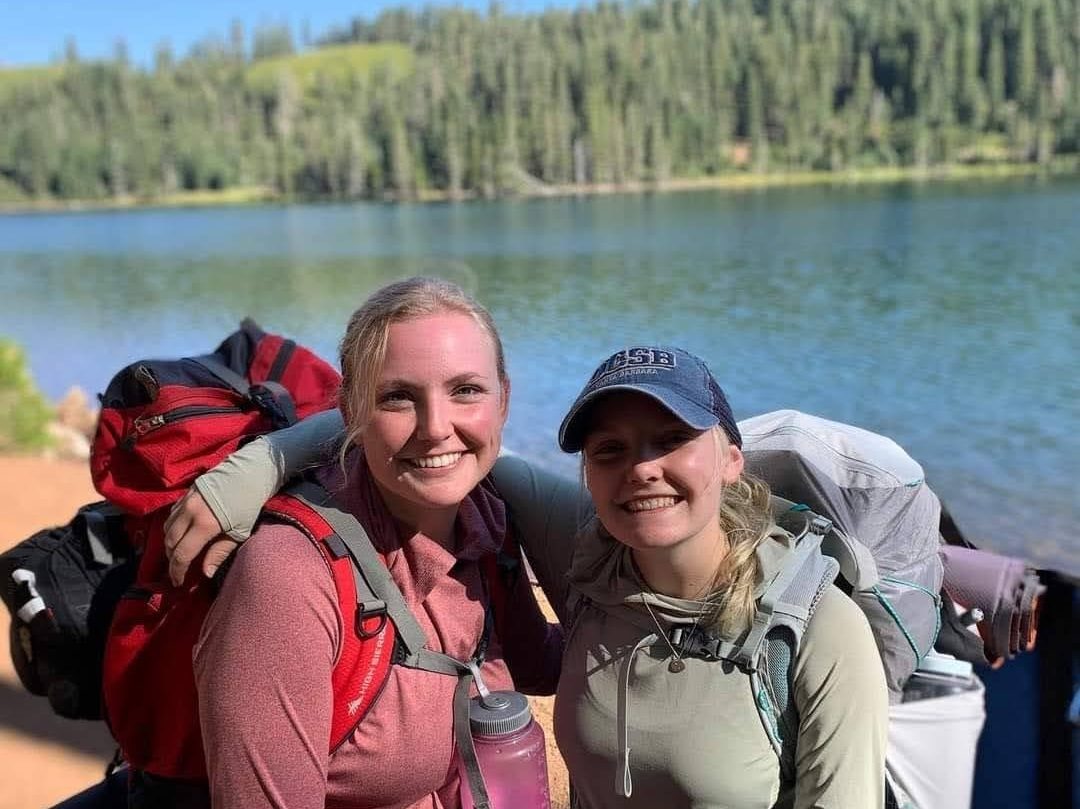
This is what made me at my core, what gave me my voice, and what motivates me to work to give others what I had. While it may be easier to influence kids and younger people to care about the environment, I believe the same methods can be applied to all people, of all ages. If we can communicate about the environment in diverse ways, and connect to a wide range of values, we can effectively show diverse groups of people why they need to care.
With a bit of guidance, caring can turn into action. If we can foster the things that make us care for the planet, we can turn our caring into transformative change.



